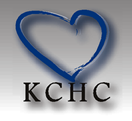

Innovations in Health Communication

What about COVID-19?
For our conference, we will be following current public health guidelines as issued by the government to protect the health and safety of our participants. We also will have face masks available for anyone who wishes to use them and hand sanitizer stations at multiple locations in our conference space.
Who typically participates in KCHC? Can people outside of the communication discipline participate?
Absolutely! We encourage anyone with an interest in health communication to attend, whether they be graduate students, early-career scholars, tenure track or tenured faculty, clinical researchers, healthcare providers, representatives from non-profit or governmental organizations, or industry professionals. While the majority of our attendees are health communication scholars, we regularly have attendees who specialize in other communication-related areas, such as risk and crisis communication, as well as attendees from outside the academy.
In short, all papers can be considered for top conference paper. However, to be able to offer the full spectrum of awards, we need to know if papers should be considered as a student or early career scholar paper. Here are the criteria for those:
Some additional considerations:
Detailed information about this question is available here.
It is recommended that you follow standard guidelines for research posters when creating your poster. The most important thing to keep in mind, from our perspective, is the size. Posters should not be any bigger than 4’ H by 8’ W. Please refrain from printing numerous 8.5” by 11” sheets of paper in lieu of a poster.
Please contact us at kchc@lsv.uky.edu and let us know the title of your abstract, and we’ll get back in touch with you as soon as possible.
Unfortunately, given the size of our conference, we don’t have need for volunteers beyond our own staff like larger conferences do. We do our best to offer substantially reduced registration rates for students, though. And registration includes continental breakfasts each day, as well as lunch on Saturday (conference awards banquet), so meal expenses are reduced.
It depends! Generally, though, most attendees will pay for travel, lodging, meals not provided by the conference, and incidental expenses.
Some additional considerations:
The earlier you book your hotel the better. April is a very busy month in Lexington, so we strongly urge you to make your reservations early-certainly no later than the deadline to receive the discounted room rate.
If there is no availability in the host hotel, there are other hotels nearby, which you can see on our Accommodations page.
It's great (at least we think so!). Here's some information that can help you make the most out of your time in Lexington, courtesy of the Lexington Visitors Center:
Well, this is a tricky question. The short answer is yes. However, professional conferences typically discourage multiple submissions by the same author. An important caveat is this: We expect that many of our attendees will be members of research teams, so having one’s name included as a contributor on multiple abstracts is entirely reasonable. However, we generally discourage submission of multiple abstracts with the same individual listed as the first author.
Each paper/poster abstract is distributed to three readers for blind review. Each is assigned a rating (raw score) from 0 to 100 by each of the three reviewers. The raw rating scores are converted to standard scores (z-scores) with a mean of 0 and a standard deviation of 1 to aid in accounting for differences in reviewers’ use of the 0-100 scale. Each reviewer also indicates whether or not the abstract should be accepted (yes/no) and to what extent it fits the conference theme (strongly agree to strongly disagree). Following traditional criteria, programming decisions are based on a combination of average z-scores and number of “yes” votes. Paper programming decisions are also based on consistency with session themes as they emerge from submissions and as they fit with conference theme.
Panel proposals are reviewed by a group of senior scholars who evaluated them through discussion and ranking. Programming decisions are based on the extent to which panels address cutting edge research issues in health communication and are consistent with the conference theme.